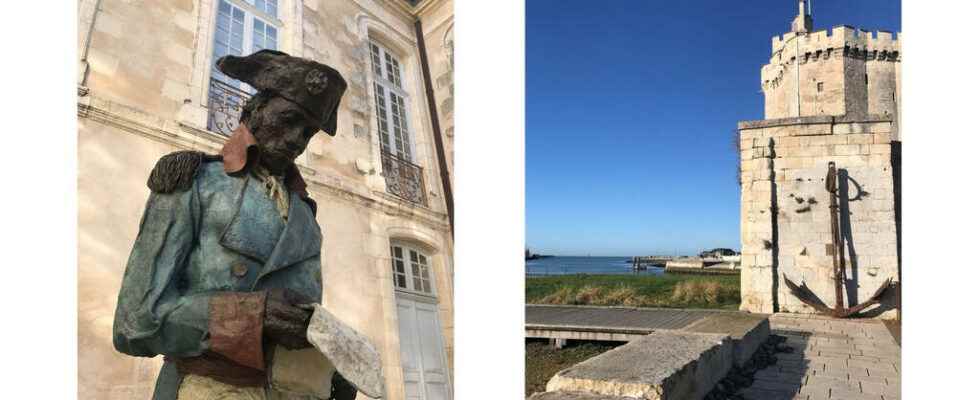New stopover in our great journey in the footsteps of the memory of slavery. After Nantes, Liverpool, Louisiana or the islands of Guadeloupe, we take the direction of La Rochelle, the second slave port in France in the 18th century.
Marine ink and slave chains. Black flesh and white stones. These words haunt the visit of those who seek traces of the slave past of this beautiful marine and merchant city, located in the heart of the Bay of Biscay, and which, very early on, got involved in this “infamous traffic”.
Indeed, from the 16th century, La Rochelle was the first French port to engage in the transatlantic trade of human beings and so-called colonial foodstuffs to become in the 17th century the first slave port of the Kingdom of France. In all, there are 427 ships leaving from the city of La Rochelle, ships that will deport more than 130,000 Africans to the other side of the Atlantic. Today, around the corner in La Rochelle, we find the name of one of these slave ships, the Armide. And since 2021, the city has chosen to add explanations to this street name, as it has done for six other street signs bearing the names of slave shipowners or descendants of slavers from La Rochelle.
This work of memory and sharing of the slave trade past of La Rochelle has therefore made its way, under the impetus of associations such as “Mémoria” or “Mémoires et Partages”, which began in Bordeaux and recently opened a branch in La Rochelle. . It now offers guided tours of “La Rochelle Négrière”.
At the end of Black History Month or Month of Black History in France which was held in February 2022, we go to understand how this past is told and found in a city which has, in part, built its prosperity. on slavery and the triangular trade. The traces are there, from the quays of the Old Port to the beautiful white stone facades, from the streets of the Old Town to the Museum of the New World, located in a mansion, once owned by a slave planter from La Rochelle who made his fortune in Santo Domingo , present-day Haiti. Opened in 1982, this museum is one of the very first French museums to have shared this tragic and founding past.
A report by Céline Develay-Mazurelle and Laure Allary.
Learn more :
– The Town Hall of La Rochelle has published a course on the traces of slavery in the city. to find and Download here before your visit
– On the history of the La Rochelle slave trade in the 18th century, a virtual exhibition available here and an educational file drawn up by the departmental archives of Charente Maritime
– On the New World Museum opened in 1982 which returns at length in its rooms to the slave trade past of the city
– On the La Rochelle branch of the Memories and Sharings association which organizes “La Rochelle négrière” guided tours in the city
– On the action of Memories and Sharings Association created by Karfa Diallo in Bordeaux, around visits to “Bordeaux Nègre”
– On the Memoria association, a pioneering memorial association created by Josy Roten
– On the Foundation for the memory of slavery.
To read :
– “Black memory, history of slavery: Bordeaux, La Rochelle, Rochefort, Bayonne“. A collective reference work. Editions Mollat. 2020
– “La Rochelle, Aunis and Saintonge faced with slavery». Collective work under the direction of Mickaël Augeron and Olivier Caudron. Les Indes savantes editions. 2012
– “La Rochelle, second French slave port», by Jean-Michel Deveau. Notebooks of the Rings of Memory. Nantes 2007.
